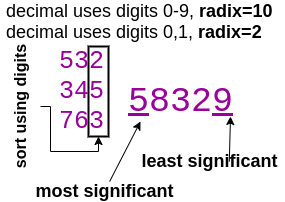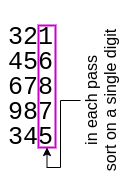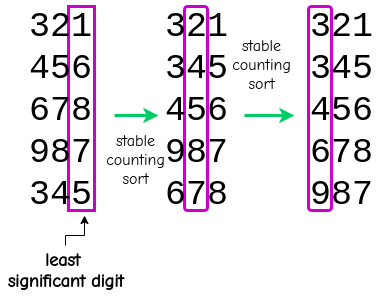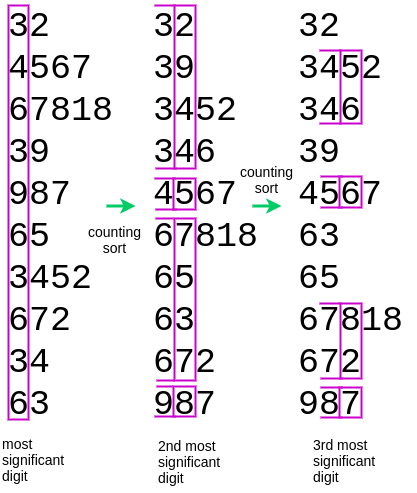
Sort elements based on value of a single digits in each pass.
Radix ( or base ) is the number of digits used to represent a number, for e.g. decimal system uses 10 digits , binary uses 2 digits .
Radix sort does NOT use comaprison for sorting, hence it can be faster than comparison sorts which are speed limited to on the speed.
It can run as fast as time.
It can be used to sort strings when they are represented as integers.
General idea
Pass over the array once for each digit.
In each pass use stableSort to sort the array based on only one digit.
radixSort (array):
for digit -> 0 to numberOfDigits:
stableSort(array, digit)
LSD sort : Least Significant Digit
- Each number should have the same number of digits (width).

lsdRadixSort(array):
for lsd -> digits to 0: //lsd -> msd
countingSort(array, lsd)countinsSort(array, digit):
//TODOMSD sort : Most significant Digit

MSDsort(array, 0, array.length, 0)
MSDsort(array, subArrStart, subArrEnd, msd):
count = countingSort(array, msd)
for i->0 to maxWidth //radix
MSDsort(array, count[i], count[i+1], i+1)Running time
Best case
MSD radix : Points to note
- Large number of small subarrays
- When all the strings/number are the same
- Counting sort uses extra space since it uses a count array and an aux array, this can be eliminated if we sacrifice stability
In Books
- Algorithms, 4th Edition, Sedgewick, Chapter 5.1, "MSD String Sort"